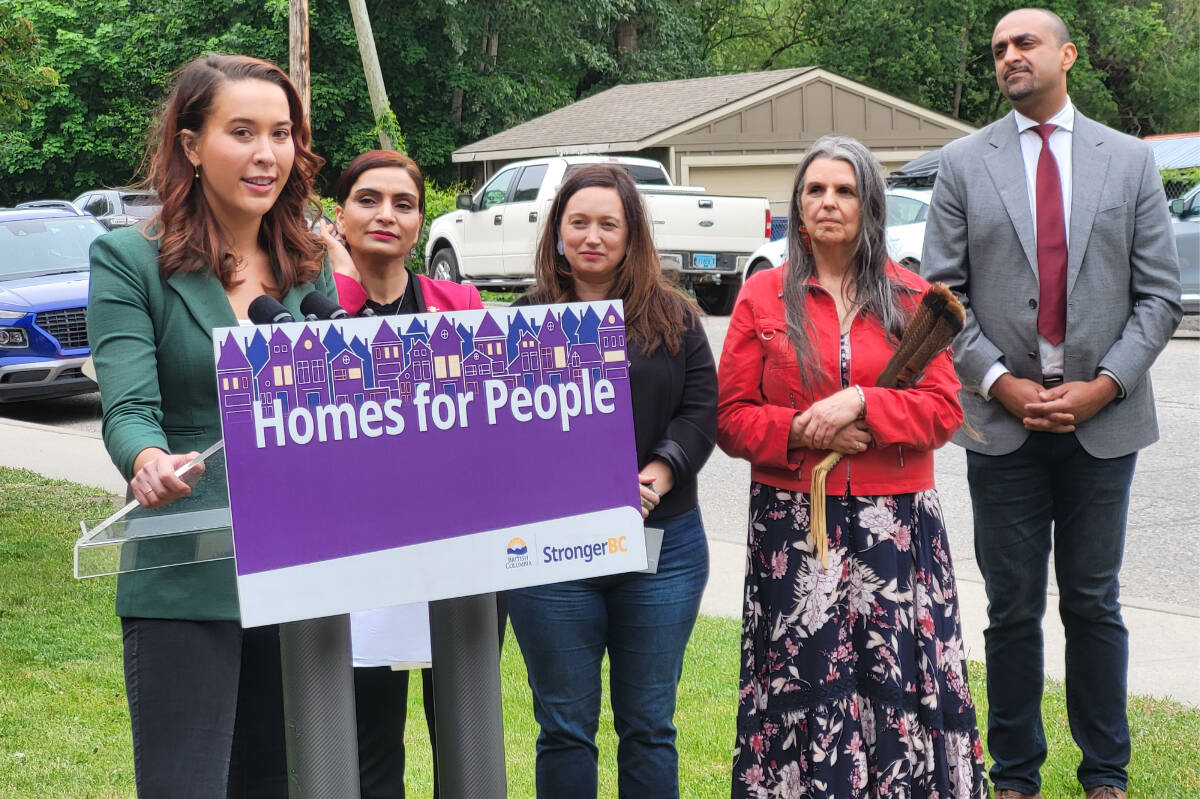The Okanagan Valley is emerging as a key electoral battleground this fall with the B.C. NDP potentially benefiting from the split on the right side of the political spectrum.
The party of Premier David Eby is heading into the election with the most incumbent seats — two — in the region where the NDP is holding an Osoyoos caucus retreat. Eby also visited the South-Okanagan-Similkameen in the fall of 2023 and became the first premier in nearly a half-century to attend the Vernon Winter Carnival.
The historic home of the Social Credit movement that produced two long-running premiers (W.A.C. Bennett and his son Bill), the Okanagan has reliably elected B.C. Liberals from the 1990s into the first decades of the 21st century.
But the region’s demographic and economic make-up has been changing. According to the 2021 census, Kelowna is B.C.’s third-largest metropolitan area with 222,162 people, making it Canada’s 20th largest CMA and, at 14 per cent, its fastest-growing.
This growth has not only earned the Okanagan one of six additional provincial seats in this year’s election, it also bears the potential of changing established voting patterns.
RELATED: David Eby attends and takes part in Vernon Winter Carnival
RELATED: B.C. premier tours southern Interior in bid to deepen rural connections
None of the Kelowna’s incumbent B.C United MLAs — Norm Letnick, Renee Merrifield, Ben Stewart, all elected as former B.C. Liberals — are running again. Also not running is B.C. United’s Dan Ashton, representing the Penticton area.
However, both New Democrats in the region — Roly Russell (MLA for Boundary-Similkameen, which includes the South Okanagan) — and Harwinder Sandhu (MLA for Vernon-Monashee) are running. Each also holds a cabinet post as parliamentary secretaries — Russell for Rural Development and Sandhu for Seniors’ Services.
Sandhu’s victory in the fall of 2020 may also preview the kind of vote-splitting on the right side of the political spectrum benefiting the NDP across B.C.
While the Conservative Party of B.C. ran only a handful of candidates in 2020, their candidate in Vernon-Monashee won 12.42 per cent — almost exactly the share of the vote that incumbent B.C. Liberal Eric Foster lost from his total relative to 2017. This split allowed Sandhu to win the riding by 400-plus votes.
As B.C. United and the Conservative Party of B.C. remain divided, this kind of split could happen in other ridings with no established history of electing New Democrats.
RELATED: B.C. United says B.C. Conservatives walked away from talks
When asked whether the Vernon-Monashee scenario was a reason why the NDP is holding its retreat in Osoyoos, Housing Minister Ravi Kahlon said the location is because people across the region are dealing with real challenges.
“We are here talking to folks in the agricultural sector, we are here talking to folks in small businesses, we are talking to people who are trying to provide housing to communities,” he said.
RELATED: B.C. government announces next purchase with rental protection fund
RELATED: B.C. fruit and grape growers get $70M to replant damaged crops
Government represents all people, he added.
“I think it’s important for all elected officials to be in this area, to talk to people on the ground,” Kahlon said. “That is what I was doing in Vernon last week, where we announced not only new housing opening, but we also announced that we are protecting renters, who are worried that their building is going to be sold and they were going to lose their homes.”
Kahlon also appeared to reach out to enviromentally-minded voters in the region, when he mentioned the phrase “climate change” eight times by an unofficial count while criticizing Conservative Leader John Rustad and highlighting efforts by various cabinet members to help orchard and vineyard owners impacted by the winter cold snap.
“Again climate change is real regardless of what John Rustad and the B.C. Conservatives say,” he said. “People are dealing with the impacts of climate change right now on the ground and our government is committed to not only take on climate change, but also support communities through those challenging times.”
Government this spring announced a $70-million aid package for orchardists and wineries.
Kahlon made his comments before a Tuesday afternoon rally by local farmers.
When asked whether the $70-million package was enough, Kahlon called it “significant” but signalled more help might be coming.
“That’s why we’re having meetings with them to figure out what more we can do to support them,” he said. “Again, this region, specifically our agricultural sector, is a critical part of the B.C. economy.”

